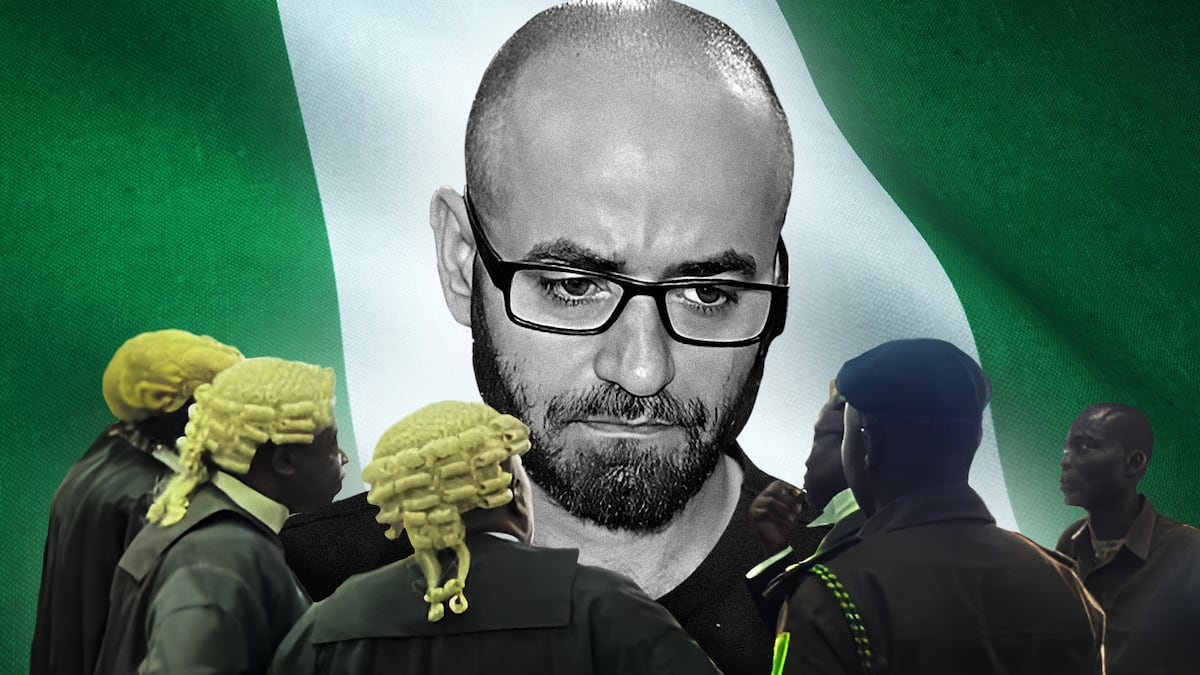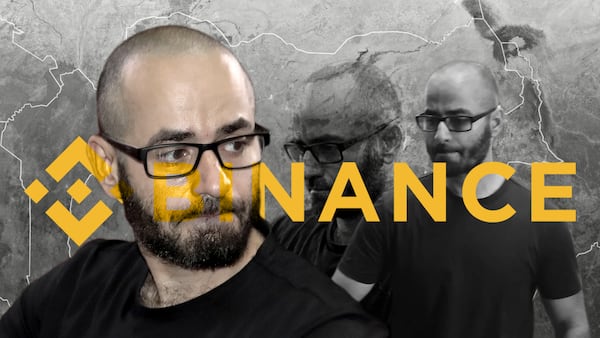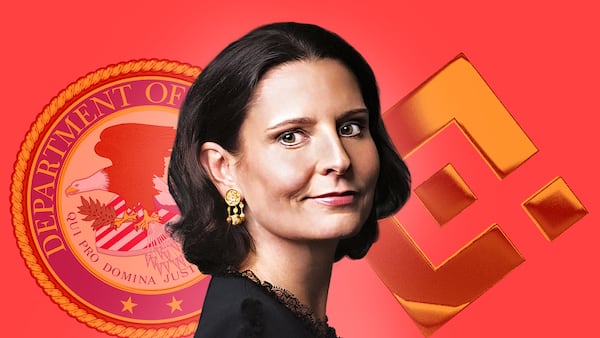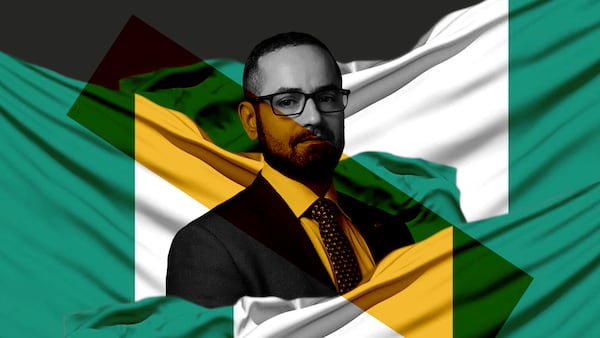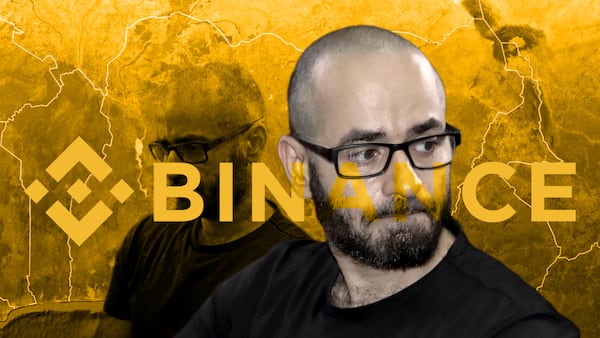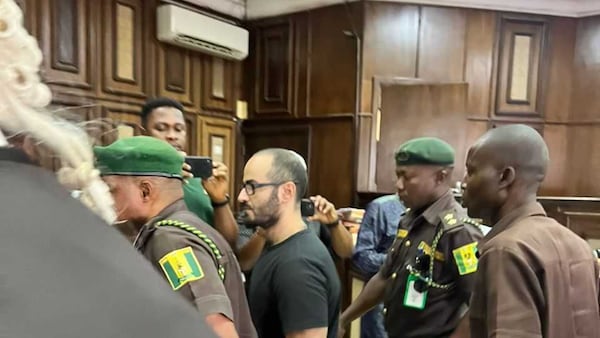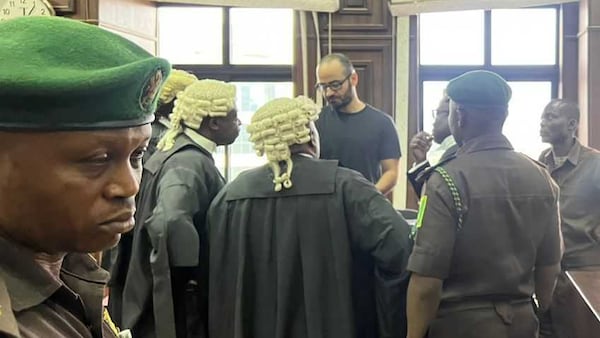- Tigran Gambaryan's money laundering trial was delayed by his health problems.
- War of words between Binance CEO Richard Teng and Nigerian officials intensified in recent weeks.
- Gambaryan remains in prison as crisis enters its fourth month.
Last week, Binance executive Tigran Gambaran showed the toll his four month ordeal in Nigeria is taking.
On May 23, he collapsed in court during the second day of his money laundering trial, which his lawyers have decried as a trumped up case and “state sanctioned hostage taking.”
As one of his lawyers helped him to a chair, Gambaryan’s lead attorney, Mark Mordi, implored the judge to get treatment for his client.
Justice Emeka Nwite assented. He directed prison officials to take Gambaryan to Nizayime Hospital, an upscale private medical facility in Abuja, the capital, for treatment, DL News learned from a person familiar with the decision.
Gambaryan’s wife Yuki, barely able to conceal her despair, excoriated the harsh treatment meted out to her husband by Nigerian authorities.
“For nearly three months now, Tigran has faced unimaginable stress at the hands of an unjust detention,” Yuki Gambaryan said in a statement sent to DL News.
“A sense of loss for being separated from everyone he knows and loves, and now a serious illness which is not, in my opinion, getting the medical attention it deserves.”
Bribery and money laundering
The cryptocurrency community is no stranger to drama. But no other episode hits the jaw-on-the-floor levels of the crisis unfolding in Nigeria.
Amid accusations of bribery and money laundering, a daring escape from custody, and an Interpol red notice, Gambaryan, a US citizen who used to work for the federal government, has become a pawn in the clash between the world’s top crypto exchange and Africa’s most populous nation.
Even as legal proceedings move forward in fits and starts, he isn’t the only defendant in the dock. Binance’s freewheeling business model, which shunned pesky rules such as licencing and domiciling in markets where it operates, is also, in a sense, on trial.
For the last three months, Nigerian anti-corruption and tax officials have hammered Binance with accusations its online crypto exchange has undermined the nation’s currency, the naira, and facilitated at least $35 million in illicit financial transactions.
Binance has denied the allegations.
In a series of recent developments, Binance CEO Richard Teng broke his silence this month and accused Nigerian officials of trying to shake down Binance by demanding a $150 million bribe from Gambaryan when he visited the country in January.
“Our counsel reported back that he had been presented with a demand for a significant payment in cryptocurrency to be paid in secret within 48 hours to make these issues go away and that our decision was expected by the morning,” Teng said in a blog post on May 7.
Nigerian officials said the allegation was a “deflection attempt.”
Meanwhile, Gambaryan, who has pleaded not guilty to money laundering, is facing two simultaneous prosecutions — he’s been charged with tax evasion, too, along with Binance — as the company struggles to get him freed.
And week after week, the situation grinds on with no resolution in sight.
Origins of a crisis
So, too, do questions: How did this situation get so bad? Why is Gambaryan still incarcerated? And why were he and colleague Nadeem Anjarwalla detained in the first place?
As Binance’s head of financial crime compliance, he is essentially a middle manager and not an executive who makes strategic decisions or directs business operations, Binance told DL News. So why is he being held to answer for Binance’s alleged infractions?
Nigerian officials have consistently declined to comment on the case to DL News.
The story begins not in Abuja but rather in Washington.
On November 21, Binance pleaded guilty to violating US banking laws by allowing criminals and terror groups to use its exchange to facilitate illegal transactions, and paid a $4.3 billion penalty.
Co-founder and then CEO Changpeng Zhao, who also pleaded guilty, resigned. (On April 30, a judge sentenced Zhao to a four month prison term.)
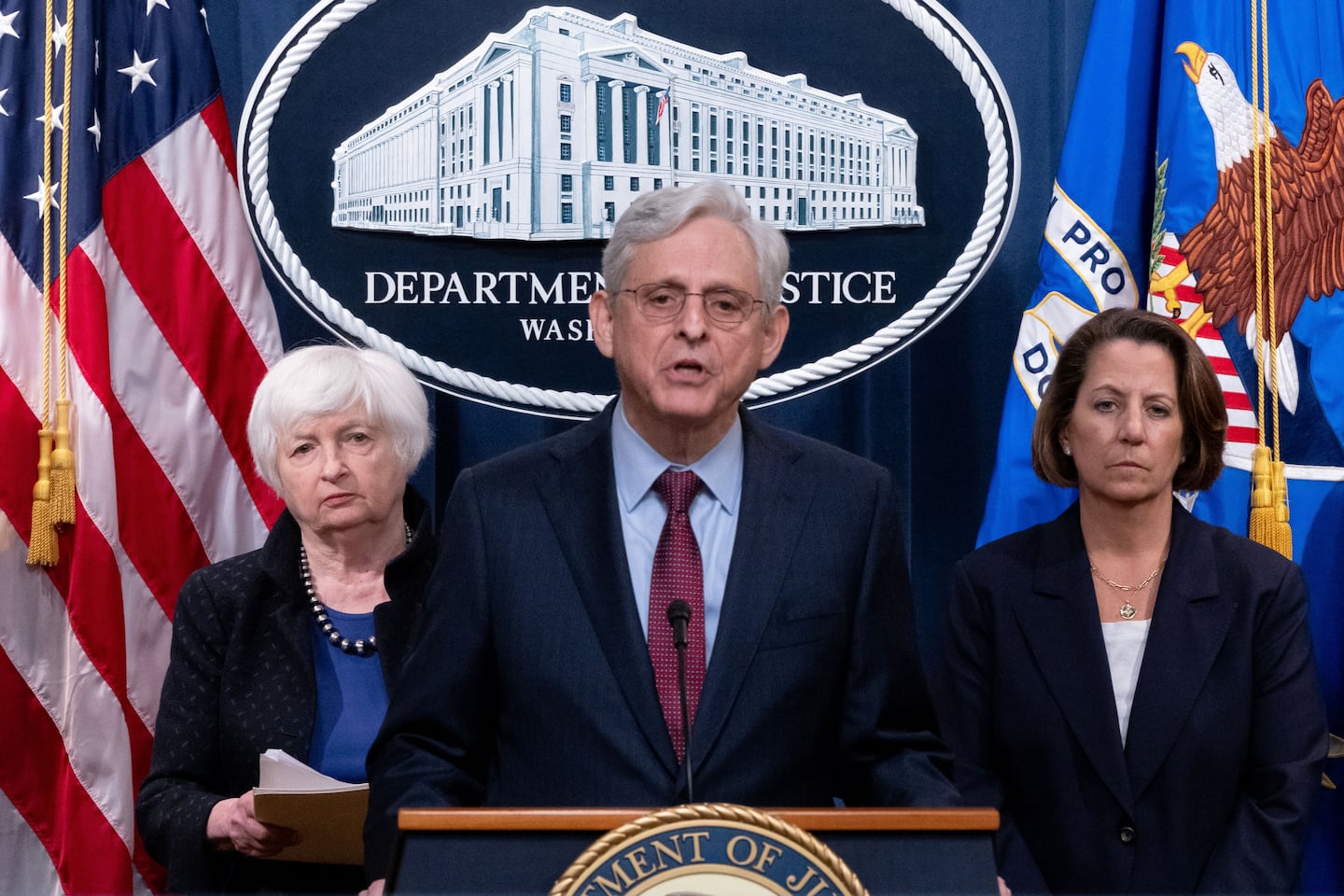
The case exposed the fundamental weaknesses of Binance’s internal controls, and its very model as a free-floating “decentralised” entity that had no need for a global headquarters or many of the other norms and rules that govern global finance.
His successor, Richard Teng, wasted no time in pledging the company would focus on regulatory compliance. But given how rapidly the exchange expanded around the world with little regard for licencing and registration, that was going to be a tall order.
And Teng had far less time than he may have imagined.

In January, Binance dispatched Gambaryan to Nigeria to address concerns officials had about Binance’s impact on the naira. Binance offered investors a way to trade a digital version of the naira, as well as its usual raft of stablecoins such as Tether’s USDT.
When Nigeria’s fiat currency plunged more than 75% against the dollar in January, officials at the central bank as well as state security pointed the finger at Binance. They accused the platform of enabling bad actors to engage in market manipulation on such a scale that it was undermining the national currency.
Gambaryan returned to Abuja on February 26 with Anjarwalla, a British lawyer who served as Binance’s regional head based in Kenya.
Government ‘guest house’
No sooner had they arrived than officials demanded they produce data on Binance’s millions of customers in the nation, according to officials familiar with the probe.
When the two executives balked, they were detained in a government “guest house” and forced to surrender their passports and mobile phones.
Meanwhile, the government formed an inter-agency investigative committee led by Nigeria’s Economic and Financial Crimes Commission, or EFCC, in collaboration with Nuhu Ribadu, the national security adviser.
The authorities kept the pressure on — they wanted user data. Binance declined to provide it.
The country’s parliament demanded that Teng appear before a legislative committee. Teng did not respond, at least not publicly.
Binance then delisted the naira as one of the supported fiat currencies on its platform and closed all of its services for users in the country.
It didn’t matter.
Later in March, Nigerian officials obtained a court order directing Binance to hand over customer details of its users to the EFCC.
On March 22, everything changed. Officials granted Anjarwalla permission to attend prayer services at a mosque in Abuja in observance of Ramadan.
Second passport
Somehow he managed to elude his guards during or after the service and make his way undetected to the airport.
Anjarwalla had kept a second passport, from Kenya, hidden from the authorities. And with it in hand, he boarded a flight and escaped Nigerian airspace before officials could catch up.
Senior officials in the EFCC and state security were embarrassed and furious, people familiar with the matter told DL News. They interrogated the guards about letting their charge slip through their fingers.
Unfortunately for Gambaryan, he did not have an alternative means of escaping Nigeria. While he tried in vain to get a new US passport, sources told DL News, the EFCC, turned the screws.
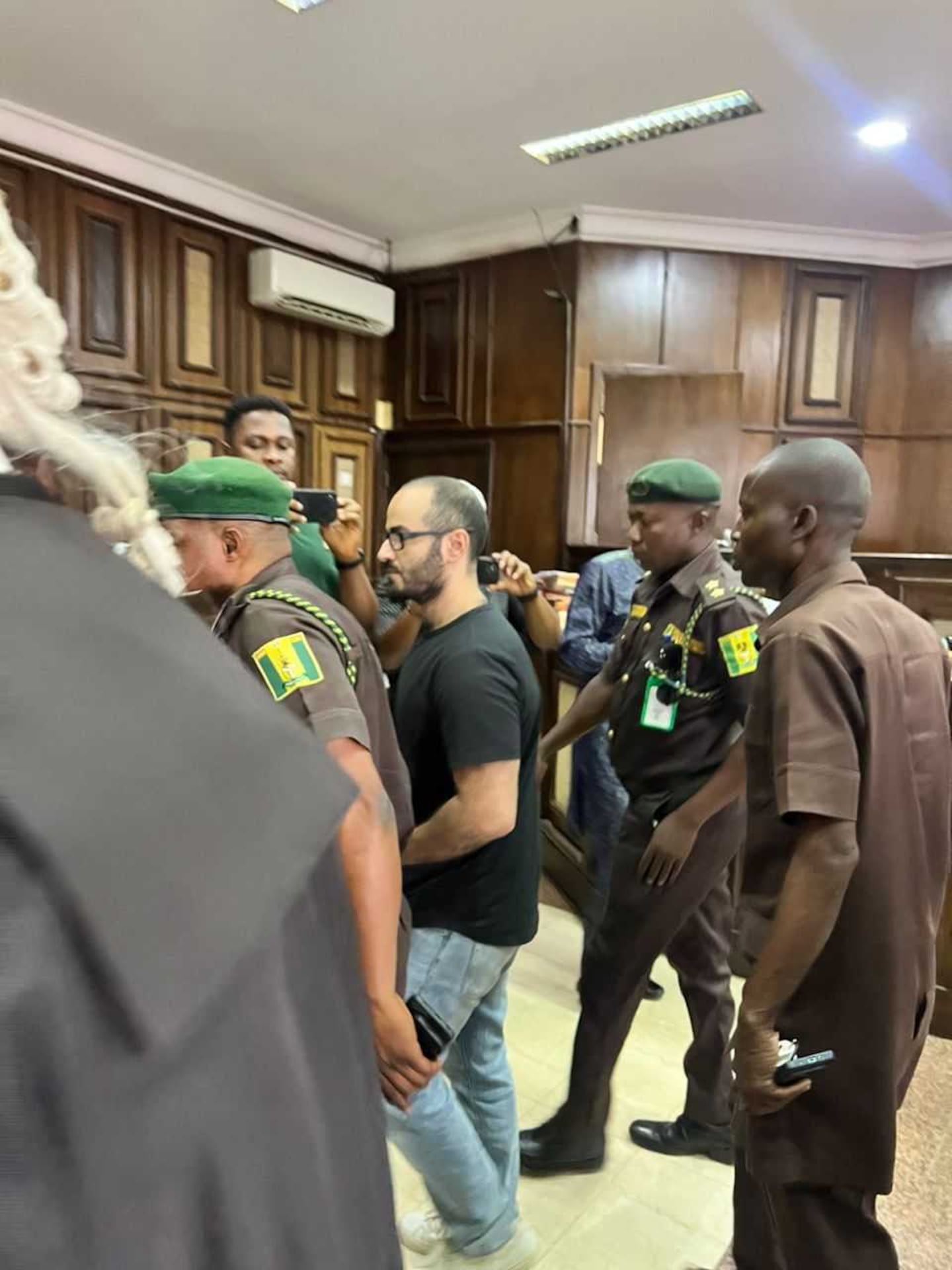
On March 29, the EFCC charged Binance and the two executives with laundering $35.4 million in illicit assets on the platform. In conjunction with the case, a court ordered Gambaryan incarcerated in Kuje Prison, a facility in Abuja that also houses terrorists.
Gambaryan, Anjarwalla, and Binance have denied the charges.
Breaking silence
Binance, which had said virtually nothing publicly since the crisis unfolded, broke its silence in April.
“We are deeply disappointed that Tigran Gambaryan, who has no decision-making power in the company, continues to be detained,” a company spokesperson told DL News on April 8.
“Tigran has been dedicated to public service and fighting crime for most of his life. These charges against him are meritless. It’s outrageous that he would be remanded in a prison such as Kuje Correctional Facility.”
‘This is purely state-sanctioned hostage-taking.’
— Mark Mordi, Gambaryan's lawyer
Gambaryan’s situation worsened as the court scheduled his trial to begin in early May, even though he had yet to have a hearing on whether he could secure bail.
Numerous delays due to procedural mistakes by prosecutors delayed his bail hearing until late April, when his lawyer, Mark Mordi, pleaded with the court to release his client on bond.
The court, however, took the matter under advisement until May 17, the date his trial was to begin. Mordi was outraged by the unorthodox decision.
“This is purely state-sanctioned hostage-taking,” Mordi told the court in proceedings monitored by DL News.
Nigerian officials had not forgotten about Anjarwalla.
On April 30, Garba Baba Umar, a Nigerian member of Interpol’s executive committee, told a Nigerian news outlet that the agency had traced Anjarwalla to Kenya, though he acknowledged the executive may have moved to another location.
Interpol issued a Red Notice for Anjarwalla, which means Interpol’s 196 member states are obliged to pick him up if he surfaces.
“Wherever he is, he will be smoked out,” Umar said.
Gambaryan hospitalised
Now the focus shifts back to Gambaryan as he is treated in hospital during the long wait for his new June 20 trial date.
“This punitive punishment against Tigran in an effort to target his employer has gone on long enough,” Yuki told DL News. “My husband is sick, he needs help.”
“Please show some sense of humanity.”
Osato Avan-Nomayo is our Nigeria-based DeFi correspondent. He covers DeFi and tech. To share tips or information about stories, please contact him at osato@dlnews.com. Edward Robinson is DL News’ story editor. Have a tip? Contact him at ed@dlnews.com.


